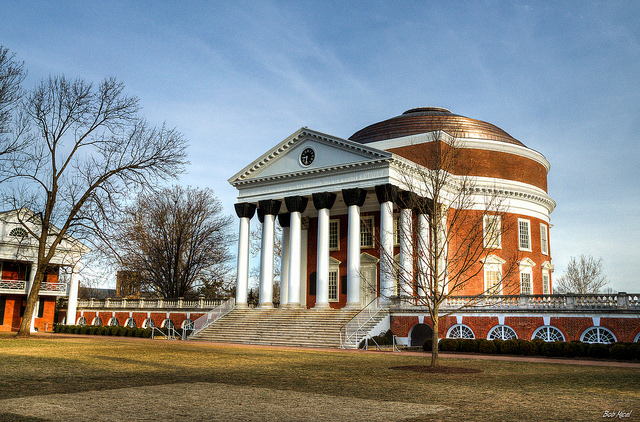Although widely discredited for a while now, the Rolling Stone has officially retracted its story on the gang rape at the University of Virginia following a report by the Columbia School of Journalism (you can read more about the Columbia report here). Ultimately, the Rolling Stone violated basic journalistic standards at nearly every stage of the process. Journalists and the field of journalism will need to learn the lessons from this event to improve journalistic practices and standards. However, I’m more concerned at the moment for what all this means for higher education.

Any time you have a national magazine write a story that received the attention that this story did, it should give us all pause. The fact that we now know this story was without evidence only raises more questions. Specifically, I see four areas to address when considering what the Rolling Stone’s failures mean for higher ed.
1. Will the narrative around sexual assault change in light of the Rolling Stone story?
Despite the failures of the Rolling Stone, the narrative around sexual assault is a serious problem for higher education institutions. Indeed, the power of this narrative helped lead the Rolling Stone astray. The editors believed that the issue of underreported and under-investigated assaults warranted attention. They went in search for a story to “prove” their narrative. While we do not have good data on the issue, we know that sexual assault is far too common on campuses then it should be. The journalistic problems with this story shouldn’t diminish this fact. However, I do believe the story will make it harder for policy makers and administrators attempting to find a reasonable common ground for coming up with appropriate policies and procedures to respond to reports of assault.
2. To what extent did a stigma of public institutions and/or Southern universities factor into the Rolling Stone’s reporting?
As reported back in November by the Washington Post, Sabrina Erdely, the writer of the Rolling Stone piece, was on the hunt for a story emblematic of the narrative regarding sexual assault. After interviewing and visiting Harvard, Yale, and Princeton among others, Erdely settled on the University of Virginia. As the Post’s story describes, “None of [the other institutions] felt quite right. But one did: the University of Virginia, a public school, Southern and genteel, brimming with what Erdeley calls ‘super-smart kids’ and steeped in the legacy of its founder, Thomas Jefferson.”
The description of UVa as public, Southern, and genteel makes me think there was a stigma and stereotype at play in the Rolling Stone’s reporting. Is there a more loaded word when describing the South than genteel? I have not read anything that calls this into question. Yet, as someone who works and loves Southern universities, I do believe there was an element of looking down at UVa as a Southern university. It seems to me that this was part of making the story fit and played to regional stereotypes in disgusting ways. I would like to see this addressed and acknowledged as another wrong in this story.
3. Will victims be less likely to come forward?
I worry that the problems raised with the Rolling Stone’s story will make victims less likely to come forward in the future. Victims already know they are likely to face substantial scrutiny when reporting sexual assault. Given the way that the Rolling Stone source’s story fell apart, will victims think they are going to face more scrutiny than ever before? I’m worried this will make them even less likely to report. In this way, the Rolling Stone’s attempt to bring light to this issue may do far more harm than good.
4. Should we be asking our nation’s universities to investigate sexual assault?
The failures of the Rolling Stone only provide more evidence of the tremendous challenge of investigating sexual assaults. The need to balance the sensitivity of victims and the rights of the accused are complicated and hard. The magazine failed in this and, frankly, so have many colleges and universities. Institutions are in an untenable position on this issue. On the one hand, they are reported to the Department of Education for failing to respond adequately and protecting sexual assault victims under Title IX. On the other, they are being sued by students who say that they university rushed to judgement and they are innocent. This may be the most vexing issue facing campus administrators.
Where does this leave us?
All of this begs the question, should we be asking universities to investigate sexual assault in the first place? This case overwhelmed the Rolling Stone and led to basic failings of journalistic standards. I’m worried the same may be true on campus. Our judicial systems aren’t sufficient— in resources or expertise— to adequately investigate and resolve reports of sexual assault.
At a minimum, we need a more rigorous public policy debate on this issue. I believe the Department of Education has been well-meaning on this by issuing their directives to colleges. I also believe the Rolling Stone was well-meaning. Campus administrators are well-meaning in attempting to balance out the rights of the accuser and the accused.
Yet, good intentions are insufficient. The stakes are too high.

